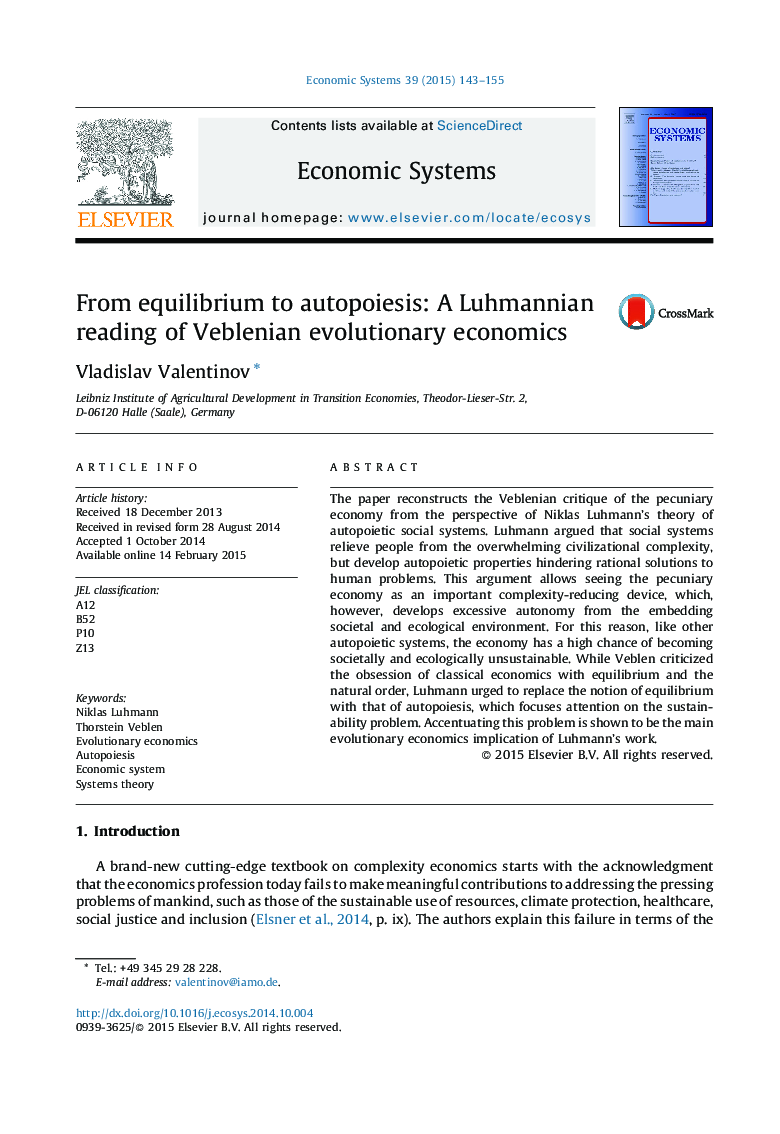| Article ID | Journal | Published Year | Pages | File Type |
|---|---|---|---|---|
| 5056356 | Economic Systems | 2015 | 13 Pages |
â¢The Veblenian and Luhmannian descriptions of the market economy have much in common.â¢The Veblenian dichotomy is a manifestation of the economy's “operational closure”.â¢In contrast to Veblen, Luhmann emphasized the economy's complexity reduction role.
The paper reconstructs the Veblenian critique of the pecuniary economy from the perspective of Niklas Luhmann's theory of autopoietic social systems. Luhmann argued that social systems relieve people from the overwhelming civilizational complexity, but develop autopoietic properties hindering rational solutions to human problems. This argument allows seeing the pecuniary economy as an important complexity-reducing device, which, however, develops excessive autonomy from the embedding societal and ecological environment. For this reason, like other autopoietic systems, the economy has a high chance of becoming societally and ecologically unsustainable. While Veblen criticized the obsession of classical economics with equilibrium and the natural order, Luhmann urged to replace the notion of equilibrium with that of autopoiesis, which focuses attention on the sustainability problem. Accentuating this problem is shown to be the main evolutionary economics implication of Luhmann's work.
